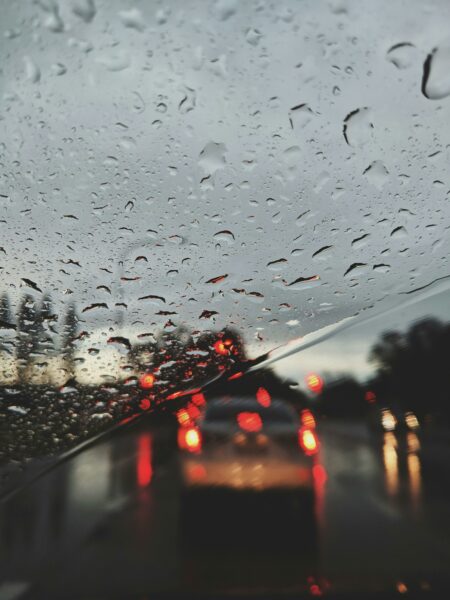According to the latest census, nearly 2 million Canadians are now living in condominiums. That number is expected to continue growing in the coming decades.
As more people move into apartment buildings and condominium complexes, it’s important to understand the laws that govern them. Among the pieces of legislation that are most important for apartment and condominium dwellers is the Occupiers Liability Act (OLA).
When an accident or injury occurs in an apartment or condo, the OLA determines who might be held accountable for the damages. But this determination involves a complex number of factors, which we’re reviewing in this quick guide to apartment building accidents.
The Occupiers Liability Act
The Occupier Liability Act defines the responsibilities of an occupier of property, including apartments, condos, apartment and condo complexes, and plazas. As per the OLA, the term ‘occupier’ includes:
(a) a person who is in physical possession of premises, or
(b) a person who has responsibility for and control over the condition of premises or the activities there carried on, or control over persons allowed to enter the premises.
When it comes to apartments and condos, occupiers can include a number of types, and each type of occupier is responsible for a different part of the building. The following are the main types of occupiers and the areas they are responsible for:
- The owner of the apartment, condo, or complex is responsible for the areas held in common (I.e. entrances and hallways).
- A contractor that works within the complex is responsible for hazards related to maintenance and renovation services.
- A landlord of a particular unit is responsible for ensuring that the unit is in liveable condition.
- A tenant of a particular unit is responsible for hazards within the unit they occupy.
Under the OLA, all of these occupiers have a duty of care to see that persons entering the premises are reasonably safe while on the premises. Property owners, for example, are responsible for maintaining a reasonable schedule of safety inspections that identify and correct potential hazards to a tenant or lawful visitor.
Apartment Building Accidents Governed by the OLA
Some of the common safety hazards of an apartment or condo building or complex are:
- Poorly maintained steps, walkways, or parking lots (i.e. ice, potholes, cracks)
- Interior flooring defects
- Debris around garbage disposal areas
- Objects in walkways
- Hazards hidden by poor lighting
- Exposed cords or wires
- Spilled water in hallways
- Hazardous chemicals and materials
- Loose or sharp items in hallways and common areas (i.e. unstable handrails)
- Grassy areas with hidden ditches or other tripping hazards
Occupiers may be held liable for accidents that occur as a result of any of these hazards, but which occupier is responsible and to what extent depends upon a number of factors.
Who Is Responsible for Apartment Building Accidents?
There are two major factors that will help determine who is liable for apartment building accidents.
The first factor is where the accident took place. As we’ve already covered, an occupier is responsible for ensuring that a property is reasonably safe, but different occupiers of apartments and condos have different areas for which they are responsible. To determine who might be held liable for an apartment accident, you must first determine who is responsible for the area in which the accident took place. In many cases, liability is held between different parties.
The second factor to consider when determining responsibility for an accident is whether or not the occupier knew or should have known about the hazard. According to the OLA, occupiers must take steps to stay aware of potential hazards in the areas they are responsible for. As they become aware of these hazards, they must take reasonable steps to alleviate any potentially hazardous conditions. Failure to do so can make them liable for accidents that occur as a result of their negligence.
There are a few other factors that may affect who is held liable for an apartment accident, including:
- safety inspection protocols and schedules
- the existence (or lack of) preventative measures
- the foreseeability of the danger
- the length of time the danger was present
- how the occupier’s conduct compares to standard practices
All of these things will be taken into account to determine who is liable and to what extent they are liable for injuries resulting from an apartment accident.
Exceptions to Occupiers Liability
There are a number of exceptions to the OLA that anybody seeking compensation for an apartment accident should be aware of.
Importantly, the OLA only applies to lawful visitors or persons entering a premise lawfully. Therefore, trespassers are not owed a duty of care by the occupier.
The duty of care does not apply to risks willingly assumed by a person who enters the premises. This applies to anyone participating in recreational activities, such as swimming or using a common gym. For these situations, there is an assumption of risk on the part of the individual.
An injured party’s state of mind may be considered when determining liability as well. For example, if an individual was under the influence of alcohol or drugs when the accident took place, the proportion of liability applied to an occupier may be reduced.
Have You Suffered an Apartment Accident?
Whether you’re a visitor or a resident of an apartment, condo, or complex, you’re owed a duty of care by the occupier. Occupiers are required to take reasonable steps to ensure that your safety is protected and, when they fail to do so, they may be held liable.
However, as we can see, determining what occupier is liable and the extent to which they’re liable isn’t always clear. If you’ve suffered an apartment accident, it’s important to seek the expert counsel of a personal injury lawyer.
Sharma Law understands the OLA inside-out. Contact us today to find out if you’re owed compensation for an apartment accident and by whom.


